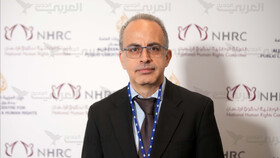
The number of countries recording a terrorist attack rose from 58 to 66, according to the 12th annual Global Terrorism Index (GTI). This reverses nearly a decade of progress, with 45 countries declining and 34 improving. The four deadliest terrorist groups increased their violence in 2024, driving an 11% increase in deaths. In the West, lone wolf attacks are now the dominant form of terrorism, accounting for 93% of fatal attacks over the past five years.
A summary of the report is as follows:
- The Sahel region remains the epicenter of terrorism, accounting for more than half of global terrorism-related deaths.
- The Islamic State (ISIS) is expanding its operations to 22 countries and remains the deadliest organisation, killing 1,805 people, 71% of which were in Syria and the Democratic Republic of Congo.
- The Tehreek-e-Taliban Pakistan (TTP) emerged as the fastest-growing terrorist group, with a 90% increase in attributed deaths.
- Deaths in sub-Saharan Africa (excluding the Sahel) are now at their lowest level since 2016, down 10%.
- Terrorist attacks increased by 63% in the West, with Europe hardest hit, with attacks doubling to 67.
- In 2024, several Western countries reported that one in five terror suspects were under 18, with teenagers accounting for the majority of ISIS-related arrests in Europe.
- Seven Western countries are in the top 50 countries with the most impact in the GTI
Terrorism deaths increased in Iran, with the highest tolls in Burkina Faso, Pakistan and Syria, according to the report. Burkina Faso is responsible for a fifth of all deaths worldwide.
The Islamic State (ISIS) remains the deadliest organization, killing 1,805 people in 22 countries in 2024, one more than the previous year. ISIS was most active in Syria and the Democratic Republic of Congo. The Khorasan Province (ISK) has become one of the most active jihadist groups worldwide, carrying out major attacks in Iran and Russia. Since 2020, ISK has expanded from one country to five and preaches in nine languages. The Tehreek-e-Taliban Pakistan (TTP) is the fastest-growing terrorist organization, with fatalities increasing by 90 percent to 558.
The GTI is produced by the international think tank Institute for Economics and Peace (IEP) and has been published annually for the past 12 years. It is the most comprehensive source on global terrorism trends and uses multiple factors to calculate its score, including the number of incidents, fatalities, injuries and hostages, before combining these with conflict and socioeconomic data to provide a comprehensive picture of terrorism.
Steve Killa, Executive Director of the IEP, said of the report that this year’s Global Terrorism Index highlights two key concerns. Firstly, 98% of all terrorist deaths occurred in conflict zones, with 2024 seeing the highest number of conflicts since the end of World War II. Secondly, social tensions and discontent in the West are fuelling lone actor terrorism. 93% of all deadly terrorist attacks are carried out by lone actors. The best way to control terrorism is to stop or reduce the number of conflicts.
The report said most attacks in the West are now carried out by individuals without formal group affiliations who become radicalised through social media, gaming platforms and encrypted messaging apps. The shift to online extremism enables potential terrorists to access extremist content and organise with minimal physical contact. Algorithmic radicalisation on popular social media sites can push users towards more extreme content over time.
The West saw its first major increase in terrorist incidents since 2017, with the number of attacks rising from 32 to 52. Sweden, Australia, Finland, the Netherlands, Denmark and Switzerland all recorded their first attacks in more than five years. Germany was the worst performer in Europe, falling to 27th in the world after the attack on the Magdeburg Christmas market.
In the UK, under-18s accounted for 42 per cent of the 219 terror arrests last year. They are not usually associated with established groups and can combine conflicting extremist ideologies.
Terrorism in the Sahel region of Africa has increased significantly, with deaths increasing almost tenfold since 2009. Weak governance, ethnic tensions, and environmental degradation have created a fertile environment in which terrorism can flourish. The Sahel accounted for 51 percent of terrorism-related deaths in 2024, and Burkina Faso, despite an overall improvement, remained the second-worst-hit country for the year. Six out of ten countries in the region recorded at least one fatality. Togo recorded its worst year for terrorism since the index began, reflecting the spread of terrorist activity beyond the Sahel.
Competition over the region’s mineral resources has contributed to ongoing instability. Gold is a major flashpoint in Mali, Burkina Faso, and Niger. Niger supplies more than 25 percent of Europe’s uranium. While France is retreating, Russia’s presence in the region has increased significantly.
Although the Middle East recorded a 7% drop in terrorist attacks in 2024, to 618, renewed violence between Israel and the Palestinians continues to destabilize the region.
Hate crimes against Muslims in the United States spiked after the Gaza war, with FBI-recorded incidents targeting the Muslim community increasing by 300% in just two months.
While the United States bucked the trend of other Western countries in 2024 with just one fatality from three attacks, 2025 is set to be a worse year. The January attack in New Orleans, in which an ISIS-affiliated gunman killed 15 people, suggests that concerns about a resurgence in terrorist activity remain. Globally, there were a total of 24 foiled plots linked to ISIS or affiliated groups, including a high-profile plot targeting Taylor Swift’s concerts in Vienna, but many more were likely thwarted.
Terrorist organizations are rapidly adapting to emerging technologies, transforming their operations through artificial intelligence and encrypted communications. Intelligence agencies report that ISK has significantly expanded its digital arsenal, producing AI-powered video content and sophisticated online magazines in multiple languages.
The group uses encrypted messaging platforms and cryptocurrencies to raise funds, while using artificial intelligence to create local propaganda aimed at foreign targets. Their reach now stretches from Central Asia to North America, demonstrating how digital platforms have transformed terrorist recruitment and operations.
This technological evolution poses new challenges for security services, as extremists increasingly exploit encrypted applications and dark web communities for radicalization and operational planning. Artificial intelligence also creates opportunities for intelligence services to analyze larger amounts of information and detect radicalization earlier.





